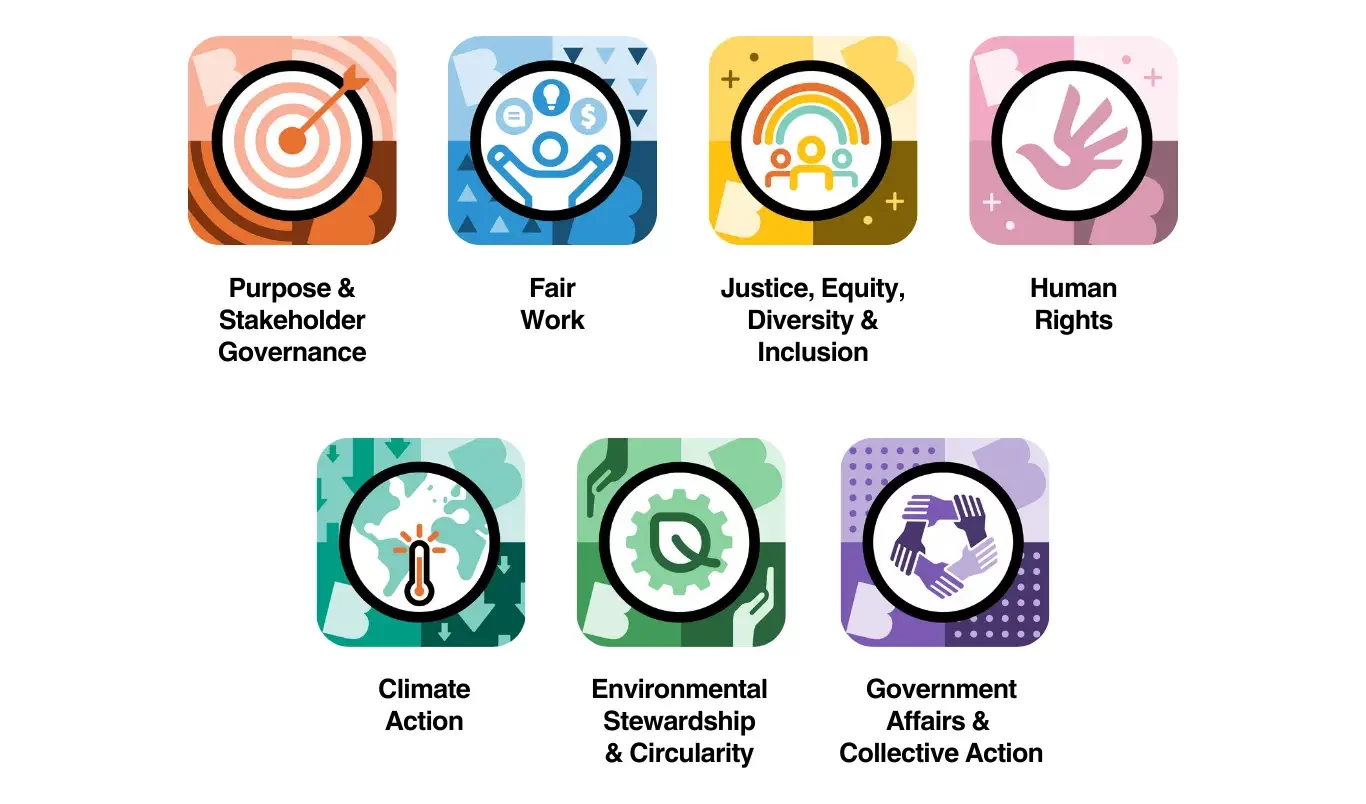
Practical informations for you to kick off your B Corp journey today!

B Lab’s standards are at the heart of the B Corp movement and our collective mission to transform the economic system. They define the key environmental and social issues that we believe businesses must tackle, ensuring that B Corps continue to lead the way.
The new standards mark the most significant evolution in our movement’s history and give companies clarity to take meaningful and tangible action on issues facing people and the planet now and into the future.

We are planning to begin accepting submissions on the new standard in 2026. Sign up for free to B Impact to start your certification journey on the new standards!
In a company’s certification journey, its first step is meeting the Foundation Requirements, which are:
After that, the company can move on to filling in the B Impact Assessment, where it needs to meet minimum requirements across all 7 Impact Topics.
Standard Approach
The standard certification approach is used for the vast majority of certifying companies. All companies under €100MM in annual revenue will be on the standard approach, regardless of company complexity factors.
Large Enterprises
The Large Enterprise Approach (LEA) is applicable to companies who have over €100MM in annual revenue and have material complexity factors that will impact the company’s B Corp Certification pathway. Most companies with consolidated annual revenues between €1B — €5B must be on the LEA. Learn more about the Large Entreprise Approach.
Pending Status
Start up: Companies that have been operating for fewer than 12 months are eligible for Pending B Certification. Learn more about Pending B Corp Certification.
A company must be a for-profit business and have been in operation for at least 12 months to be eligible for B Corp Certification.
B Corp is a company-level certification intending to capture the impacts of a business’ operations. B Corp Certification applies to independently operating businesses or Complete and Distinct subsidiaries, and does not apply to brands or divisions of a business.
The costs related to the B Corp Certification depend on the company’s revenue. View price breakdown here.
Read more about the current standards.
B Corps must validate they still meet B Corp Certification requirements and undergo verification of their sustainability performance every three years, or after a Change of Control (of company ownership) or Initial Public Offering. In order to engage with the Recertification review process, all recertifying B Corps must submit their updated B Impact Assessment no later than six months before their Recertification date, indicated on the Dashboard of the B Impact Assessment platform.
B Corps can find resources to help with this and other topics in the B Community Platform!


Meet the Foundation Requirements and then complete the assessment in which you need to meet minimum requirements across 7 all Impact Topics.
Submit your B Impact Assessment for a performance review, pay the submission fees, enter the evaluation queue.
Evaluation – Analysts confirm that the business is eligible and that the certification requirements are met.
Verification – Analysts review and verify BIA responses.
Final Assesment check – Analysts confirm the score of 80+ points.
Pay the Certification Fees – B Lab Europe sends the invoice upon certification.
Meet the Legal Requirement – Include the B Corps Clauses in your company’s articles of incorporation.
Onboarding Call & Announcement – Get onboarded in the Community and celebrate your certification.
Have questions about your B Corp Certification journey? Book a personal session with a member of our Certification Team at B Lab Switzerland.